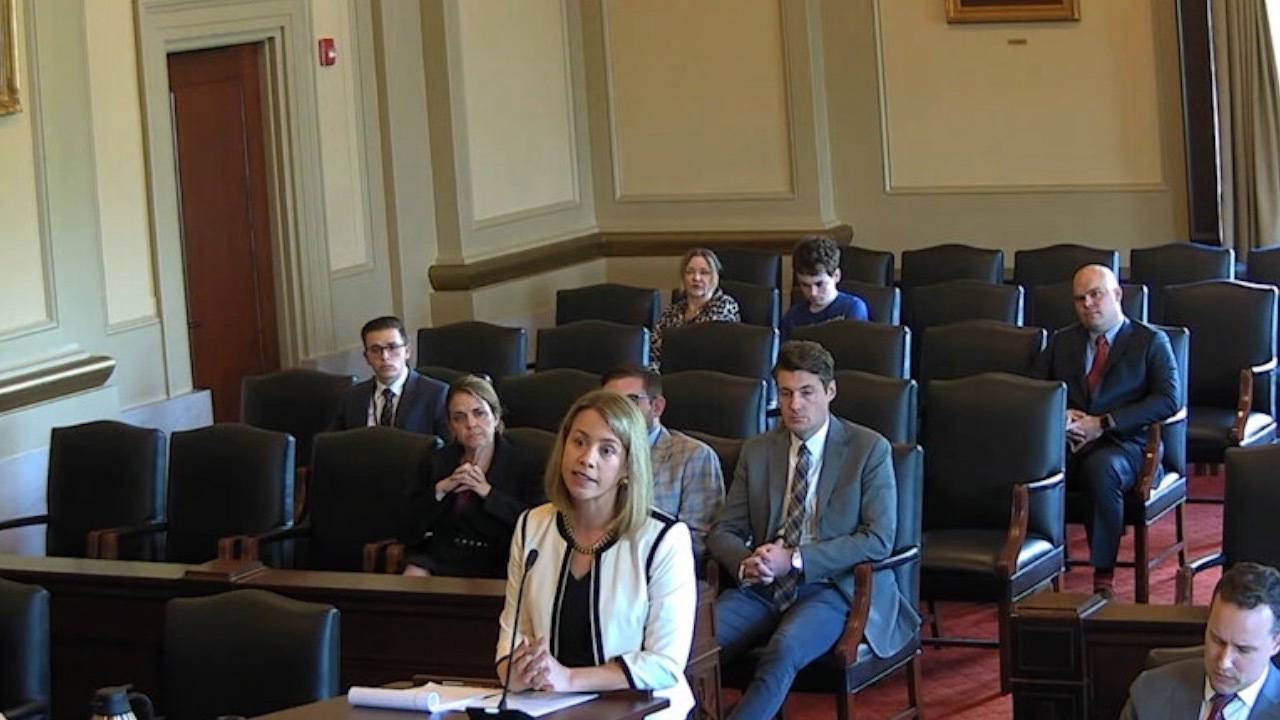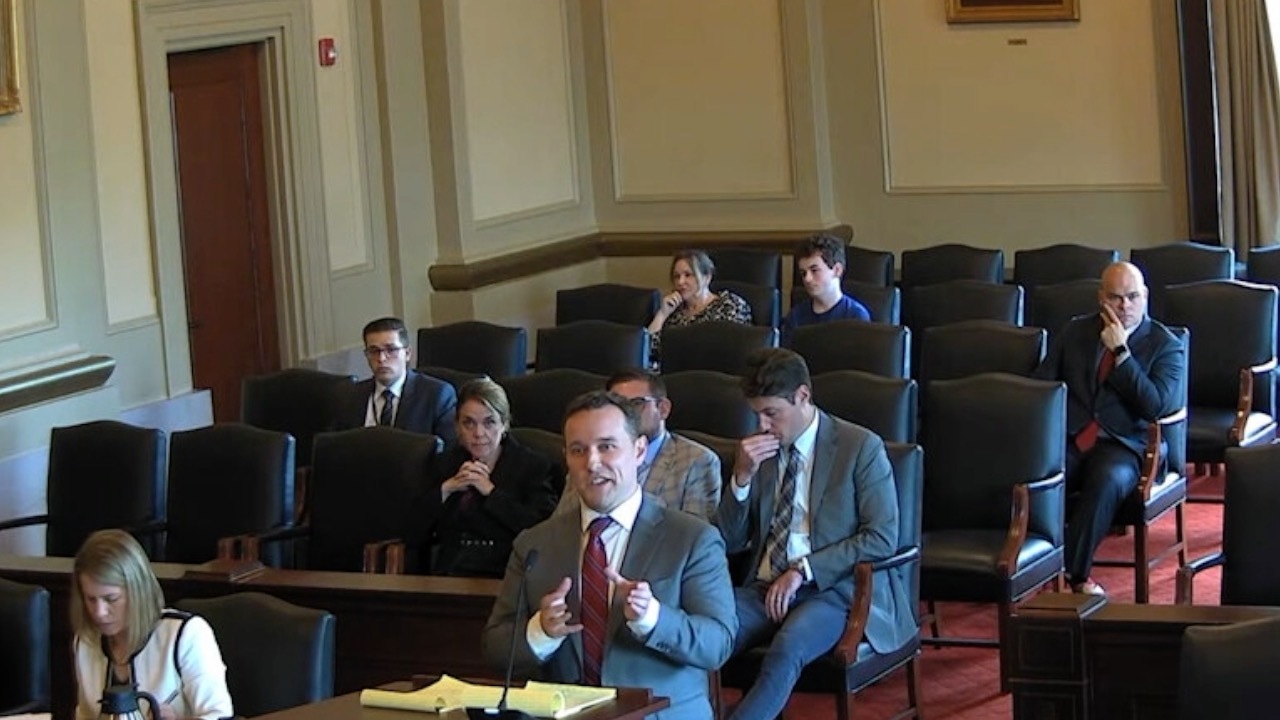- A state Court of Appeals panel will decide whether Charlotte should have produced city council survey results more quickly when WBTV requested those results as public records.
- Charlotte produced the records 16 months after the television station's initial request. WBTV's lawsuit contends that Charlotte attempted to evade state public records law.
- The city argues that it never had possession of the records. Private contractor Ernst and Young conducted the online surveys and kept the results on its private servers.
The NC Court of Appeals questioned Tuesday whether Charlotte city government should have turned over records of city council surveys more quickly when WBTV requested those records.
The city’s obligation to produce those survey results makes up the heart of the debate in Gray Media Group v. City of Charlotte. A three-judge appellate panel conducted an hour of oral arguments in the case Tuesday afternoon.
Private contractor Ernst and Young collected the survey information in late 2020 as part of a city contract. When the television station first requested the information, Charlotte officials responded that the city had no records to produce. The contractor maintained possession of all survey information.
After 16 months of legal wrangling, Charlotte eventually produced the records. But WBTV argued in the state’s second-highest court that the legal battle continues.
Attorney Kaitlin Gurney, representing WBTV, described “the willful failure of the state’s largest city to follow the plain language” of its contract with Ernst and Young, along with a state Appeals Court precedent in the 2007 case Womack Newspapers v. Kitty Hawk.

“In the process, the city of Charlotte threatens to eviscerate one of the finest public records statutes in this entire country,” Gurney said. The city has “presented a playbook for other municipalities, smaller municipalities, to do the same thing.”
The city employed a “two-part playbook,” Gurney said. “First and foremost, do your business with a private contractor and put the records that you do not want the public to see in the hands of that contractor. The second part presumes that if you do indeed have a requester who can afford to sue, then after that lawsuit is filed, serve a … subpoena and make sure that you can argue that the matter is moot.”
Attorney Daniel Peterson responded on Charlotte’s behalf. “It is indisputable that the city did not have possession of the sought records at the time this complaint was filed,” Peterson said. “These were records created … in Ernst and Young’s web space, using their proprietary intellectual property.”

Judge Allison Riggs questioned the limits of the city’s argument.
“Where is the line? … What you’re suggesting is we can contract with all of these other parties and have city council members doing city business on city dime, do all this work somewhere else, such that we can say we don’t have access to it. Where does that stop?” Riggs asked.
“The large issue is whether the city can keep its documents in the possession of a third party and shield it from the Public Records Act,” Judge Allegra Collins added. “That’s the question we’re trying to answer, right?”
Ernst and Young sent council members a link to the survey. Judge Valerie Zachary asked Charlotte’s lawyer whether the city had possession of the requested information before it reached the third-party contractor.
“Wasn’t the city in possession of these responses right before the city council members hit send?” she asked.
Gurney argued for WBTV that the survey information became a public record as soon as council members responded to survey questions. “The moment we have a public official conducting public business and creating some kind of record of that, that is a public record,” she said. “The clicking on that hyperlink, the filling out of the surveys … These are feelings. These are comments about working with fellow council members. This is the public’s business.”
A coalition of media groups filed paperwork in March supporting WBTV’s case. The group opposes a trial court’s decision rejecting WBTV’s attempt to access the surveys.
The city argued it did not have possession of the surveys and couldn’t provide them to a WBTV reporter. The coalition challenging that argument includes McClatchy, the parent company of the Raleigh News and Observer and Charlotte Observer, along with WRAL-TV.
“This case concerns whether a government agency may disclaim its obligations to disclose records under the Public Records Act, …on the ground that the requested documents are in the actual possession of a third-party contractor, even when the agency has retained control over those records,” according to the media group’s court filing. “The answer to this question will have broad ramifications for government transparency in North Carolina. If this narrow interpretation of the Act is adopted, agencies could avoid scrutiny simply by transferring records to private parties.”
The media group argued “vital journalism would be hampered — and sometimes impossible — if the government’s interpretation of the Act is adopted.”
“[C]ourts in multiple states have ruled that records are still subject to disclosure if the government is in constructive control of them, regardless of whether they are in the actual possession of a third party,” according to the filing.
WBTV explained the reason for its record request when filing suit.
“The City of Charlotte Council members famously can’t get along. Like other companies that turn to team-building exercises such as ropes courses and trust falls, Charlotte hired outside consulting firm Ernst & Young, signing a multi-year contract worth up to $400,000. But unlike other companies, the City of Charlotte … is a public agency subject to the North Carolina Public Records Act, and City taxpayers are entitled to review how their tax dollars are being spent,” according to the initial complaint.
The television station sought access to surveys city council members completed in connection with the Ernst and Young contract. “This information was solicited from these public officers as part of EY’s consulting services to the City, and the firm analyzed Council members’ responses in order to provide recommendations on how they could learn to better work together. The survey work alone cost the City $46,500.”
“The contract between Charlotte and EY clearly states that the City has exclusive ownership of the Council members’ survey responses,” according to the lawsuit. “But in letters denying WBTV’s public records requests, the City claims that because the survey responses are not in the City’s custody, it does not have to produce these surveys. The City’s position is plainly in violation of North Carolina law.”
“[P]ublic records provided to Plaintiff indicate that Defendants ordered EY to dispose of at least one survey response and to not collect Council member responses to certain survey questions,” WBTV argued. The TV station “believes the City did so to evade the creation and maintenance of public records in response to requests like WBTV’s.”
The lawsuit asked the court to declare that the surveys are public records, that Charlotte must collect them from the contractor and make them available “for inspection and examination,” and that any city request for Ernst and Young to dispose of records violated state law.
In addition to McClatchy and WRAL-TV, the media coalition suppprting WBTV features Gannett, Sinclair Broadcast Group, N.C. Press Association, N.C. Open Government Coalition, Reporters Committee for Freedom of the Press, Center for Investigative Reporting, Committee to Protect Journalists, Freedom of the Press Foundation, International Documentary Association, Media Institute, National Association of Black Journalists, National Freedom of Information Coalition, National Newspaper Association, National Press Club, National Press Club Journalism Institute, National Press Photographers Association, News/Media Alliance, Radio Television Digital News Association, Society of Environmental Journalists, Society of Professional Journalists, and Student Press Law Center.
The Appeals Court panel faces no deadline to render its decision in the case.